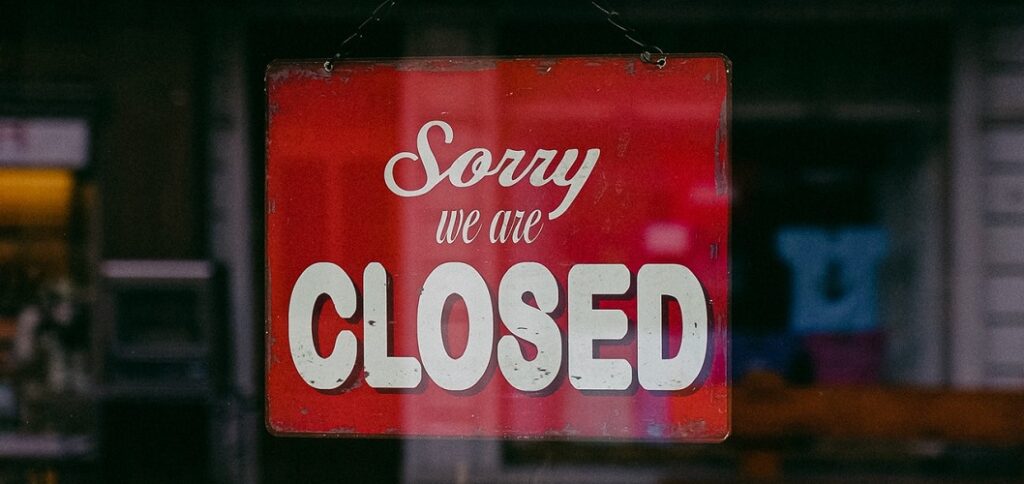Lockdown: Effects on beverage wholesalers

The lockdown in March/April 2020 and the (partial) lockdown in place since November 2020 have led to great losses in the beverage industry. The evaluations of GEDAT Getränkedaten show the extent of these losses. The data was collected based on the number of companies supplied by beverage wholesalers each month in the out-of-house market.
Great losses for beverage wholesalers in the out-of-house-market
German beverage wholesalers are positioned differently. For that reason, long-haul logistics that supply to retail grocery stores and beverage warehouses were less affected, and in some cases were even able to increase the number of deliveries. But the lockdown has had a particularly large impact on beverage wholesalers that supply the out-of-house market. The current evaluations from GEDAT indicate that the deliveries of beverage wholesalers to the catering industry have fallen by around 80 percent at times.
Development during the first lockdown
While the number of monthly deliveries has stayed at a fairly constant level prior to the coronavirus pandemic – aside from the usual seasonal fluctuation – the level falls dramatically with the start of the first lockdown on March 19, 2020. In April, there was a decrease of around 80 percent compared to the previous year.

A subsequent recovery can be seen following the end of the first lockdown from May 2020, which reaches its peak in September of the same year. However, the number of objects delivered in the out-of-house market remained under the original level of 2019.
Effects from the second lockdown
A similar image can be seen with the start of the second (partial) lockdown in November 2020. According to the report, the number of deliveries to the catering industry in this period was also significantly below the level of the previous year. Specifically, this means that the index fell to 24.2, 60.5 points below the previous month of October. December was at a comparable level with an index of 22.2.
According to GEDAT Getränkedaten, the forecast of the data, which are not yet fully available, shows no signs of easing for the lockdown month of January 2021. According to current projections, a further decrease could even be expected.
Losses of different levels depending on business types
There are different trends according to the types of businesses: In the areas of accommodation and companies with a focus on beverage sales, there were similarly severe drops in the number of deliveries, with around 85% in the first lockdown and nearly 90% in the most recent. Food catering meanwhile was not hit as hard, with a decrease of about 75%.
Short recovery after the lockdown during spring 2020
The subsequent recovery in summer 2020 also shows similar effects on the different kinds of company. Although May still shows some success, the number of companies supplied over the summer once again rose to a comparable, albeit reduced level to before the lockdown.

Compared to the same period in the previous year, in the summer months of 2020 food catering achieved an index value of 83.2 in June (previous year 100), in July 88.4 (previous year 100), in August 89.7 (previous year 97.7) and in September a high for the year of 91.3 (previous year 98.4).
A similarly positive trend can be seen in accommodation companies; here the index value for the same period from June to September was 81.8 (previous year 100), 90.5 (previous year 99.5), 91.5 (previous year 98.9) and 91.3 (previous year 97.9).
Thanks to mild improvements, for companies with a focus on serving beverages, the index value in these months describes an even better situation: The value from June to September rose to 83.7 (previous year 100), 90.3 (previous year 98.6), 91.7 (previous year 98.6) and in September to a high for the year of 92.2 (previous year 97.5).
Across all types of company however, there was still a loss of 6.4 index points in September compared to the previous year.
Renewed losses caused by the lockdown during November 2020
These positive developments come to an end again at the start of the second lockdown from November 2020.
Here, the companies with a focus on beverage sales had to bear the greatest losses: With a reduced index of 13.5, the level is now once again about as low as it was in the first lockdown. Compared to the previous month of October, that is a loss of 57.2 index points.
The losses experienced by accommodation companies are not quite as serious. Here, the index fell from 82.3 in October 2020 to 23.1 in November, a loss of 59.2 index points.
The smallest declines were recorded by companies oriented towards the sale of food. Here, the index fell to 32.3 in November; compared to the previous month of October (85.5), this represents a loss of 53.2 index points.
The methodology
The figures are based on the number of objects supplied by beverage wholesalers each month (average sample size of reporting beverage wholesalers per month n=922).
The evaluation takes into account deliveries to companies that are divided into different categories: serving beverages, sale of food and accommodation. GEDAT states that, because the lines between the types of company are blurred, there are also many mixed types – this should be kept in mind when reading the report.
The following breakdown can help to understand the classification:
- In addition to the classic pubs, businesses with a focus on beverages include cafes, bars and restaurants with a menu that can definitely do take-out business during the lockdown.
- Types of business with a focus on food are restaurants and the likes of chain catering, rest stops, snack bars.
- Accommodation includes companies with any orientation towards overnight stays, such as hotels, guesthouses or youth hostels.
The observation period for the underlying investigation started in June 2019, the number of objects is represented by the index value 100. The index value shows the relative change in the number of objects supplied per month in relation to the initial month. An index of 110 means a change of +10 percent while an index value of 90 represents a change of -10 percent compared to the initial value.
Would you like to share your experiences in the beverage industry with an international specialist audience? Then we would very much like to invite you to take part in the next drinktec from September 12 to 16, 2022, in Munich.
This article is powered by Verlag W. Sachon.
